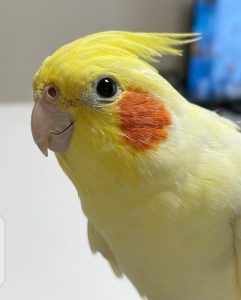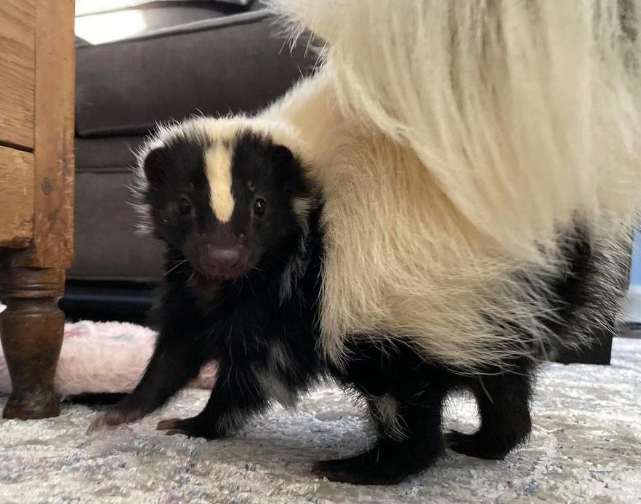
Cockatiels: The Sweet And Social Parrot
Cockatiels are one of the most popular pet birds in the world, and for good reason. They are sweet, social, and relatively easy to care for. They are also brilliant and can be trained to perform tricks.
Natural History
Cockatiels are native to Australia, where they live in flocks of hundreds or even thousands of birds. They are nomads, meaning they travel in search of food and water. Cockatiels are herbivores whose diet consists mainly of seeds, fruits, and vegetables.
Physical Characteristics
Cockatiels are small parrots with a body length of about 12 inches and a wingspan of about 18 inches. They have a distinctive crest of feathers on their heads, and their cheeks are adorned with orange patches. Cockatiels have long, slender tail feathers, and their feet have two toes facing forward and two toes facing backward.
Temperament and Personality
Cockatiels are known for their sweet and social personalities. They love to interact with people and other birds. Cockatiels can be very affectionate and often bond closely with their owners. They are also very playful and intelligent birds.
Caring for a Cockatiel
Cockatiels are relatively easy to care for, but there are a few things that you need to keep in mind. They need a spacious cage with plenty of toys and perches. They also need a varied diet that includes pellets, seeds, vegetables, and fruits. Cockatiels need to be handled regularly and socialized with people.
Training a Cockatiel
Cockatiels are brilliant birds and can be trained to perform tricks. The best way to introduce a cockatiel is to use positive reinforcement. This means rewarding the bird with treats or praise when it serves the desired behavior.
Common Health Problems
Cockatiels are generally healthy birds but susceptible to a few common health problems. These include respiratory infections, feather plucking, and obesity. It is essential to take your cockatiel to the veterinarian for regular checkups.
Lifespan
Cockatiels have a lifespan of 10-20 years in captivity. With proper care, some cockatiels have even lived for over 30 years.
Fun Facts About Cockatiels
- Cockatiels are the smallest members of the cockatoo family.
- Cockatiels are the second most popular pet bird in the world, after budgies.
- Cockatiels are very social birds and live in flocks in the wild.
- Cockatiels are intelligent birds and can be trained to perform tricks.
- Cockatiels have a perfect sense of hearing and can mimic sounds, including human speech.
Choosing a Cockatiel
Finding a reputable breeder or pet store is essential when choosing a cockatiel. The bird should be alert and active, and its feathers should be clean and smooth. It is also necessary to avoid birds that show any signs of illness or injury.
Bringing Your New Cockatiel Home
Once you have chosen a cockatiel, it is essential to bring it home correctly. The bird should be transported in a secure carrier with a soft blanket. Place the carrier in a quiet and safe area of your home. Allow the bird to settle in for a few days before you start handling it.
Bonding with Your Cockatiel
The best way to bond with your cockatiel is to spend time with and talk to it. You can also start training your cockatiel with simple tricks. As your cockatiel becomes more comfortable, it will begin to trust and bond with you.
Conclusion
Cockatiels are excellent pets for people of all ages. They are sweet, social, and relatively easy to care for. A cockatiel may be your perfect pet if you are looking for a loving and intelligent companion.
Additional Tips for Caring for a Cockatiel
- Provide your cockatiel with a spacious cage with plenty of toys and perches.
- Feed your cockatiel a varied diet that includes pellets, seeds, vegetables, and fruits.
- Handle your cockatiel regularly and socialize it with people.
- Train your cockatiel with simple tricks using positive reinforcement.
- Take your cockatiel to the veterinarian for regular checkups.
Common Mistakes to Avoid When Caring for a Cockatiel
- I need to provide a spacious enough cage.
- I am not feeding a varied diet.
- I need to handle the bird more regularly and socialize it with people.
- We are not training the bird.
- I am not taking the bird to the veterinarian for regular checkups.
Troubleshooting Common Cockatiel Problems
Suppose your cockatiel is not acting normally or exhibiting any of the signs and symptoms listed above. In that case, taking it to a veterinarian for a diagnosis and treatment is essential. However, there are some things you can do at home to help prevent and troubleshoot common cockatiel problems.
Diet
A healthy diet prevents many common cockatiel health problems. Cockatiels should be fed a diet consisting of various foods, including pellets, seeds, fruits, and vegetables. It is important to avoid feeding your cockatiel too many fatty or sugary foods.
Environment
Cockatiels need a clean and spacious cage to live in. They also need plenty of opportunities to exercise and play. It is essential to place your cockatiel’s cage in a quiet area of the house where they will not be startled by loud noises or sudden movements.
Socialization
Cockatiels are social creatures and need regular interaction with their owners. If you can spend a little bit of time with your cockatiel, it may be helpful to get them a companion.
Specific Cockatiel Problems
Here are some particular cockatiel problems and how to troubleshoot them:
Feather plucking
Feather plucking is a common behavioral problem in cockatiels. Various factors, including stress, boredom, and medical conditions, can cause it. If your cockatiel is plucking their feathers, it is essential to identify the underlying cause and take steps to address it.
Aggression
Cockatiels can become aggressive for various reasons, such as fear, territoriality, or boredom. If your cockatiel is biting or attacking you, it is essential to avoid punishing them, as this will only worsen the problem. Instead, try to identify the underlying cause of the aggression and take steps to address it.
Excessive screaming
Cockatiels can scream for various reasons, such as boredom, attention-seeking, and fear. If your cockatiel is crying excessively, it is important to ignore them when they are screaming and only give them attention when they are quiet. This will help them learn that screaming is not a way to get attention.
If you are having trouble troubleshooting a common cockatiel problem, it is always best to consult a veterinarian. They can help you diagnose the underlying cause of the problem and develop a treatment plan.


